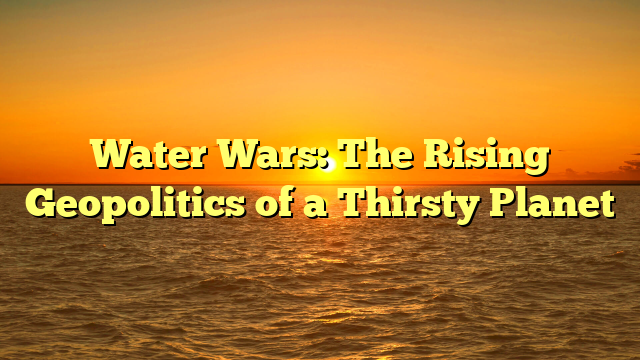As climate change accelerates and populations soar, water — the world’s most basic resource — is emerging as a catalyst for geopolitical tension. From the Nile to the Indus, disputes over rivers are testing fragile peace agreements game slot Naga169 and redefining regional alliances.
In Africa, Ethiopia’s Grand Renaissance Dam on the Blue Nile has sparked a decade-long standoff with Egypt, which fears for its water security. “The Nile is Egypt’s lifeline,” warns Cairo-based analyst Ahmed El-Sayed. “Any threat to its flow is an existential one.” Negotiations continue under African Union mediation, but mistrust runs deep.
In South Asia, India and Pakistan’s rivalry extends to the Indus River basin, where both sides accuse each other of violating the 1960 Indus Waters Treaty. Meanwhile, China’s dam-building spree on the Mekong and Brahmaputra rivers has raised alarm in Southeast Asia.
The Middle East — already one of the driest regions — faces similar struggles. Turkey’s control of the Tigris and Euphrates affects Iraq and Syria’s agriculture, while Iran grapples with its own water shortages and protests.
As nations turn to water as a strategic weapon, experts warn of a looming crisis. “Water will define the next century’s conflicts more than oil ever did,” says environmental diplomat Marina Costa.
International law offers few solutions. While global compacts encourage cooperation, enforcement is weak. The challenge ahead is stark: turning scarcity into solidarity before thirst turns into war.
